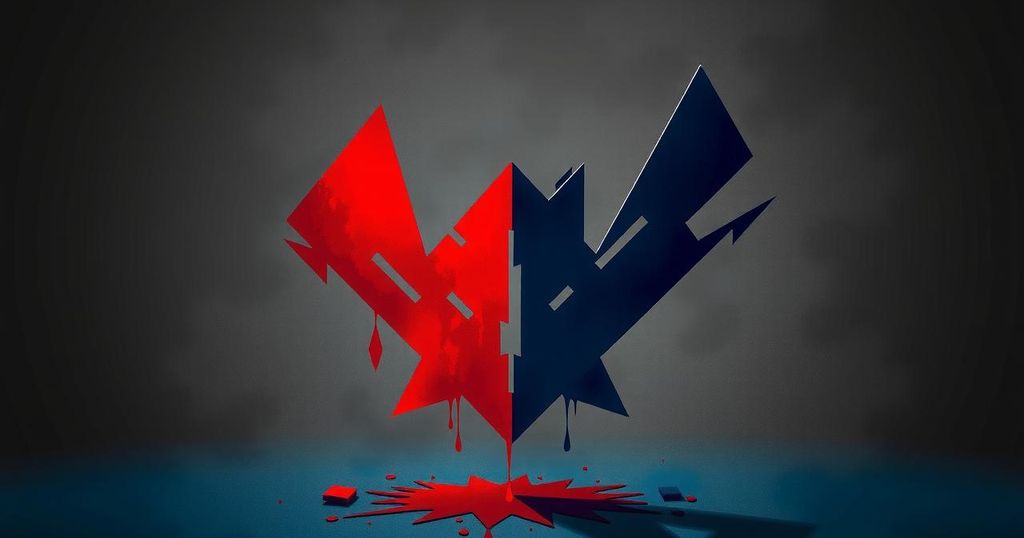Former President Donald Trump has threatened Iran in response to Houthi attacks, asserting that these aggressions are coordinated by Iran. His remarks signal a potential military escalation and deepen diplomatic tensions. The U.S. has conducted airstrikes against Houthi positions, emphasizing a strong stance on protecting American interests while navigating complex Iran relations.
Former President Donald Trump issued a stark warning to Iran via his social media platform, Truth Social, claiming that the Houthi attacks originate from Iran. He emphasized, “Let nobody be fooled! The hundreds of attacks being made by Houthi, the sinister mobsters and thugs based in Yemen, who are hated by the Yemeni people, all emanate from, and are created by, IRAN.” Trump further stated dire consequences would follow any continued Houthi aggression.
The Houthis have increasingly targeted Israeli vessels in the Red Sea as part of their protests against Israel’s actions in Gaza. Trump’s recent comments suggest a potential military escalation against Iran, marking a shift from his previous stance, which mainly urged Iran to withdraw support from the Houthis. He declared, “Every shot fired by the Houthis will be looked upon, from this point forward, as being a shot fired from the weapons and leadership of IRAN.”
In a related diplomatic context, Trump has communicated with Iran’s Supreme Leader, Ayatollah Ali Khamenei, warning of military responses if a nuclear deal is not established. Khamenei dismissed Trump’s overtures, framing them as bullying tactics and emphasizing Iran’s commitment to a civilian nuclear program. Meanwhile, the Houthis have threatened to impose restrictions on Israeli shipping routes, prompting Trump to order military strikes against Houthi positions in Yemen over the weekend, resulting in significant casualties.
In Trump’s announcement of military action, he addressed Iran directly, stating, “To Iran: Support for the Houthi terrorists must end IMMEDIATELY!” He further warned of accountability for Iran’s actions affecting American interests and global shipping. The Houthis have a history of attacks on vessels in the region and have expressed their intent to escalate tensions in response to Trump’s military actions. Trump’s rival, President Joe Biden, had also conducted attacks against the Houthis, albeit framed as efforts to disrupt their military capabilities without escalating conflict.
While Trump’s administration portrays its recent military stance as a response to provocations, the Pentagon has clarified it does not desire a war, aiming instead to prioritize American interests in the region. Pentagon spokesperson Sean Parnell affirmed, “If you shoot at American troops, there will be consequences,” reinforcing the commitment to respond decisively against threats.
However, the potential repercussions of escalating military action in the Middle East remain a significant concern as both the Houthis and Iranian officials prepare to confront these developments.
The recent warning from former President Donald Trump to Iran regarding Houthi attacks has heightened tensions in the region. Trump’s statement links the Houthis directly to Iran and suggests potential military action against Iran in response to these provocations. While his administration seeks to prioritize American interests, the escalation poses risks of further conflict and instability involving both Iran and the Houthis. As diplomatic relations remain fraught, the implications of these threats warrant careful observation.
Original Source: ifpnews.com




